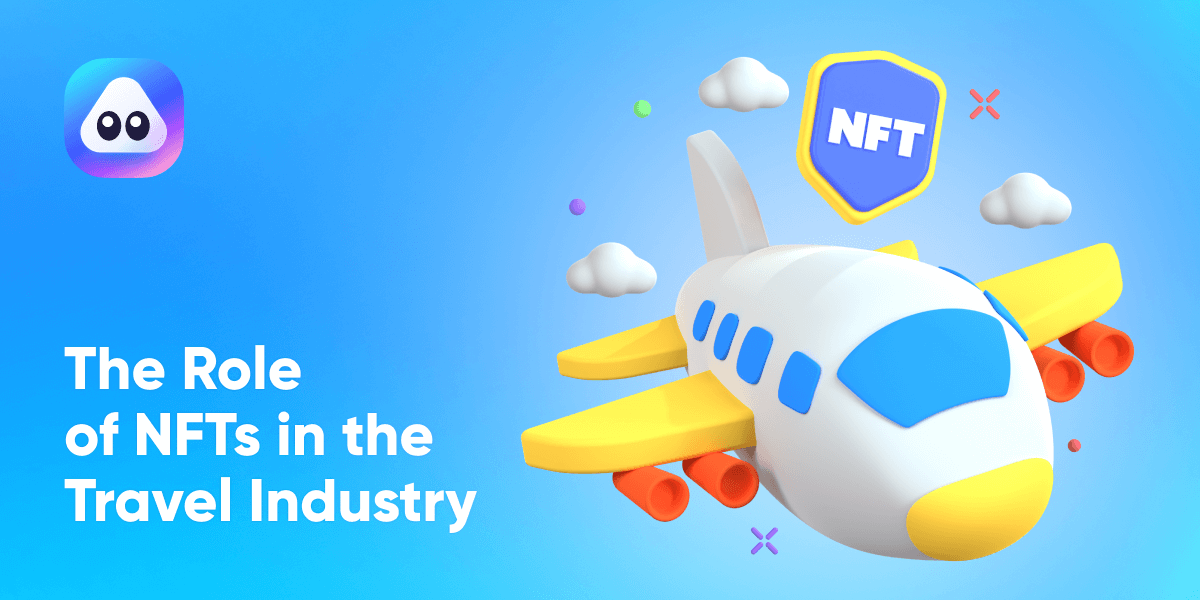The Role of NFTs in The Travel Industry
On a cursory look, NFTs in the travel industry might appear odd, but this piece will show you the round holes in which NFTs in travel fit perfectly.
November 8, 2022

Ever had to get a refund from your airline for canceled flights? Or probably couldn’t meet up to a hotel reservation and lost all chances of a refund? These are two of many frustrating situations in the travel industry. Not only are they tiresome for travelers, but businesses also have to deal with refunds and compensations. What if there was an efficient way to pay for travel expenses without fear of losing out entirely if an emergency prevents you from making the trip? Perhaps NFTs can be an unlikely answer to the challenges facing the travel industry. Keep reading to learn about how this is possible.
Current Setbacks
The travel industry is recently making a comeback from the coronavirus pandemic. Operations that were erstwhile quick are now being a recalibration of customers’ sentiments toward traveling. It is unlikely that things will be different than before the pandemic.
1. Inefficient booking methods
Booking all you need for a vacation can be stressful, and there are dedicated professionals to ensure you don’t go through the stress. Online bookings have made things easier for travelers, but demand more commissions from hotels. Apart from these, bookings don’t go through as expected, leaving the travelers stranded.
2. Low customer retention
In the past, many people stuck with the same travel company when planning a vacation. However, in recent years, there has been a shift toward increased competition and decreased customer loyalty within the travel industry. This is because of several factors; The rise of online booking platforms makes it easy for consumers to compare prices and find the best deals, and the growth of the sharing economy, like Airbnb, has made it possible for people to find alternative accommodations that are often more affordable than traditional hotels.
Travel companies face challenges in retaining customers and generating repeat business due to these changes. To adapt to the changing landscape, companies must focus on providing an exceptional customer experience while offering competitive prices.
Where do NFTs come in?
Leveraging its underpinning tech–blockchain, NFTs in travel will transform several operations, three of which are:
1. Bookings
NFTs are an ideal platform for managing bookings, as they can help to streamline the process and reduce the time and effort required. In particular, they can help track bookings, confirm availability, and process payments. As a result, they have the potential to make booking methods more efficient and reduce the cost and complexity of the process. In addition, NFTs are highly secure, which can help protect against fraud and ensure that bookings are processed safely.
2. Customer loyalty
The secure and transparent nature of NFTs makes them suitable for building trust in the travel industry. Customers can easily view their loyalty cards on the blockchain and see the perks they are eligible for repeated patronage. NFTs should also be transferable in the likely event that one’s trip is postponed or outrightly canceled. This way, the hotels do not have to pay refunds, and the traveler still gets value for his NFTs. Hotels can also use this to improve their brand marketing strategies.
3. Brand Building
People are wired to associate with communities; otherwise, Discord servers and Telegram pages will not be sprouting up every other second. While most of these communities usually trade hopes and promises, NFTs in the travel industry will be completely different. Travel brands can create their NFT ecosystem where users identify with and interact with their features. The NFTs will also be interoperable with third-party marketplaces to increase liquidity.
4. Tracking Luggage
Luggage often changes hands when traveling, and missing luggage is not a rarity. With a decentralized database like where NFTs are built, tracking luggage positions can be easier and less laborious.
5. Rewarding Customers
NFTs in travel can also be utilized as an incentive system for rewarding customers who complete tasks such as visiting certain places and providing information about them.
Take Home
From sports to media and gamefi NFTs, there is an increasing list of technologies adopting web3 products to upscale their operations, and the travel industry will be a crucial addition. Introducing NFTs in travel will reduce pain points on the business owners’ side and create a customer-centric business approach, which has always proven to result in profitability.
AirNFTs is poised to drive blockchain adoption across industries and create a non-custodial NFT marketplace (read as home) where everyone can interact and trade NFTs seamlessly. Follow our Telegram, Twitter, and Instagram pages to stay on top of the latest NFT news.
Read up on the following NFT use cases series on our NFT blog.
